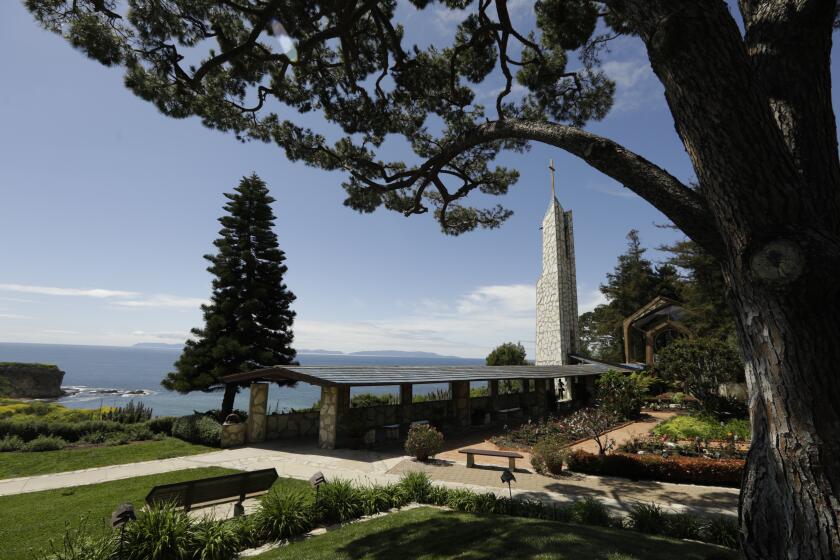MWD Backs Tougher Water Quality Standards
The Southland’s big water supplier, the Metropolitan Water District, long reluctant to acknowledge potential danger to its water supply, changed course Tuesday and, in a small but significant step, supported proposed state legislation to tighten state water quality standards.
The overwhelming vote of the board for the proposal by Sen. Ruben S. Ayala, (D-Chino) left environmentalist board members unhappy, however. They had wanted endorsement of an even tougher bill pending in Sacramento by Assemblyman Byron D. Sher (D-Palo Alto.)
“We are willing to spend hundreds of millions of dollars for the expansion of facilities but not on water quality,” said board member Tim Brick of Pasadena, protesting that his colleagues were unresponsive to public concern over pollution of the drinking water supply.
“I don’t think we are out of touch with the public,” replied board Chairman E. L. Brunner of El Segundo, who favors the Ayala bill.
A local government board’s recommendations on congressional and state legislation usually do not get much attention because they tend to be ignored by lawmakers in Sacramento and Washington. Tuesday’s action was different.
First, Metropolitan has influence with Southern California legislators, who are responsive to the many small water agencies that are represented on the MWD board. That tight connection between water agencies, which often have life-and-death power over determining land development, and legislators, who often rely on developers and other real estate interests for campaign contributions, has made MWD a Sacramento force for years.
Second, district officials said, the vote to recommend legislative approval of the Ayala bill marked an important policy change for the MWD, which supplies water to agencies in Ventura, Orange, Los Angeles, Riverside, San Diego, San Bernardino and Riverside counties.
Previously, officials said, the board was reluctant to take actions that would be viewed as conceding that the MWD water supply--from the Colorado River and Northern California--faces any pollution threat. That feeling was shared by many staff members who are proud of their water quality work and tend to resent criticism of it.
Last year, the board, acting on the recommendation of the staff, voted to remain neutral in the campaign over Proposition 65, the toxic control measure designed to protect the state’s water supply. Environmentalists were unhappy with the neutrality. When the measure was overwhelmingly approved in November, staff members began reassessing their attitude, conceding that the public was getting the impression the district was hostile to new water protection moves.
Later that month, MWD staffers prepared a report declaring that some crucial underground MWD water supplies may not meet new state and federal standards--the first indication from the district that some of its underground water sources face pollution troubles.
In strongly favoring the milder Ayala approach over Sher’s bill, the board made it clear that it was not joining the more militant part of the environmental movement. Only Brick and director Robert Gotleib of Santa Monica favored the Sher bill.
Both bills aim at preventing water pollution by imposing tougher state standards, rather than by banning any specific chemical by name. Goals of the Sher bill are more far reaching, however, calling for state policy to “reduce to the lowest level practicable all concentrations of toxic chemicals which, when present in drinking water, may cause cancer, birth defects and other chronic diseases.”
The Ayala bill says contaminants should be “controlled to levels which prevent harm to public health.” It says standard setting should be based on evidence from the public, the scientific community and government agencies and private industry. The latter provision is expected to anger environmentalists suspicious of business and many government agencies.
In a section strongly opposed by water agencies, Sher’s bill would would force water agencies to purify their water with granular activated charcoal, used by many bottled water companies and considered by environmentalists to be the best available purifier. If another process just as effective is found, it could be substituted for granular activated charcoal.
Water agencies say the granular activated charcoal process is unnecessary and too expensive.
More to Read
Start your day right
Sign up for Essential California for news, features and recommendations from the L.A. Times and beyond in your inbox six days a week.
You may occasionally receive promotional content from the Los Angeles Times.






